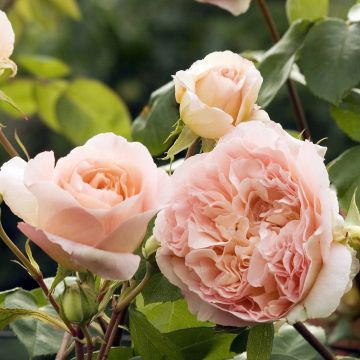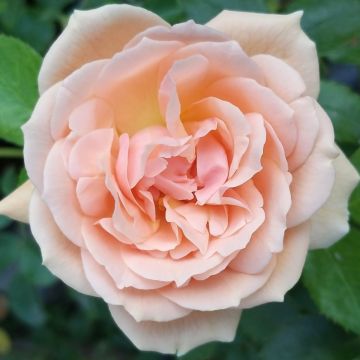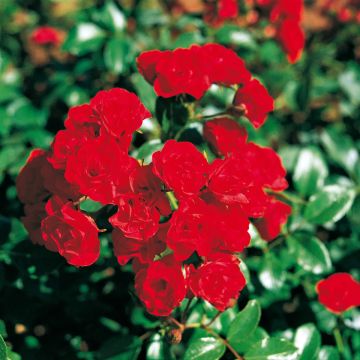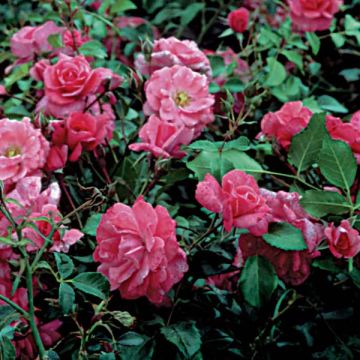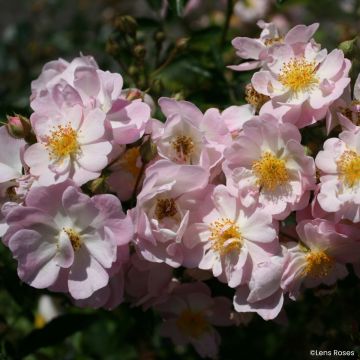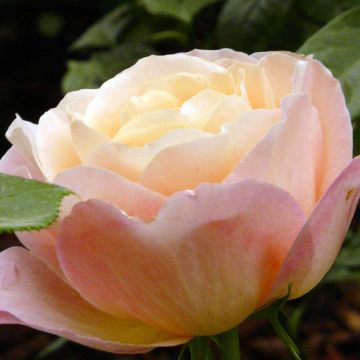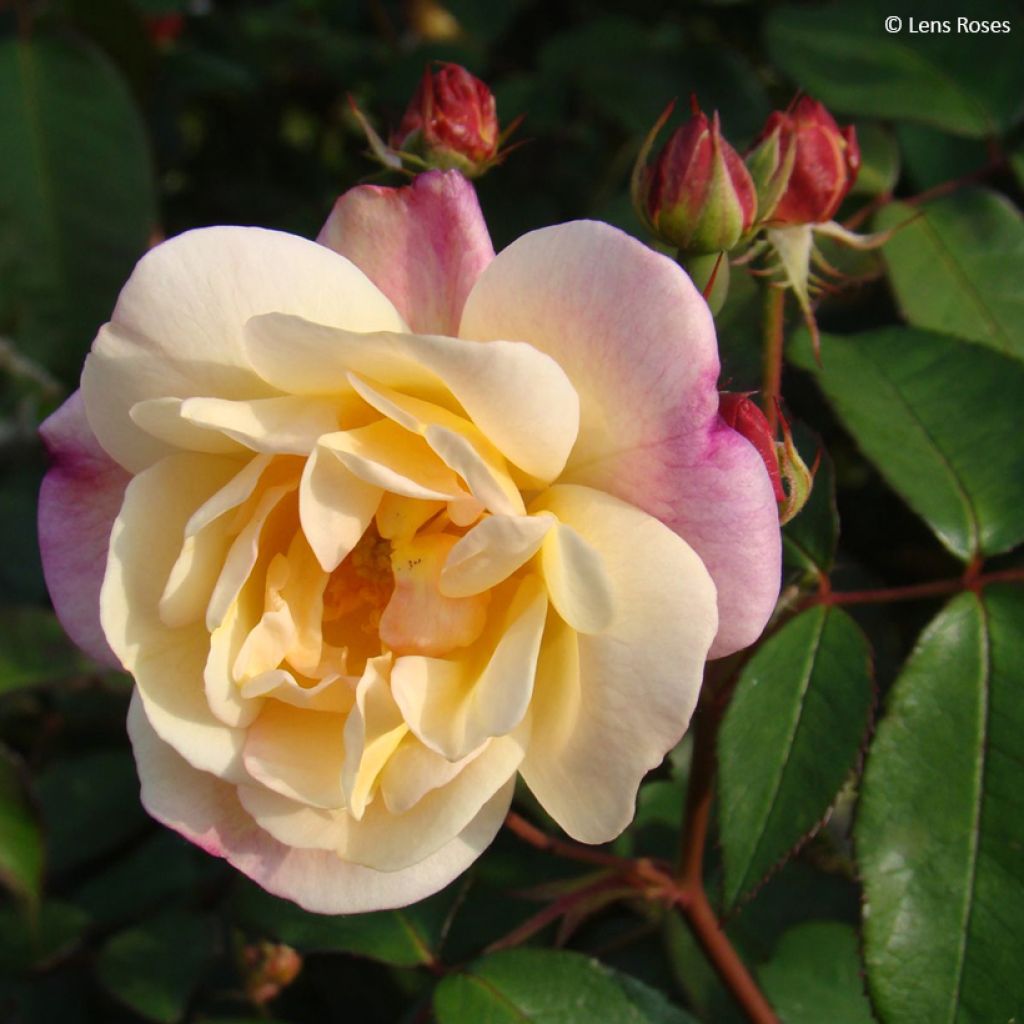

Rosa moschata Apricot Bells - Musk Rose
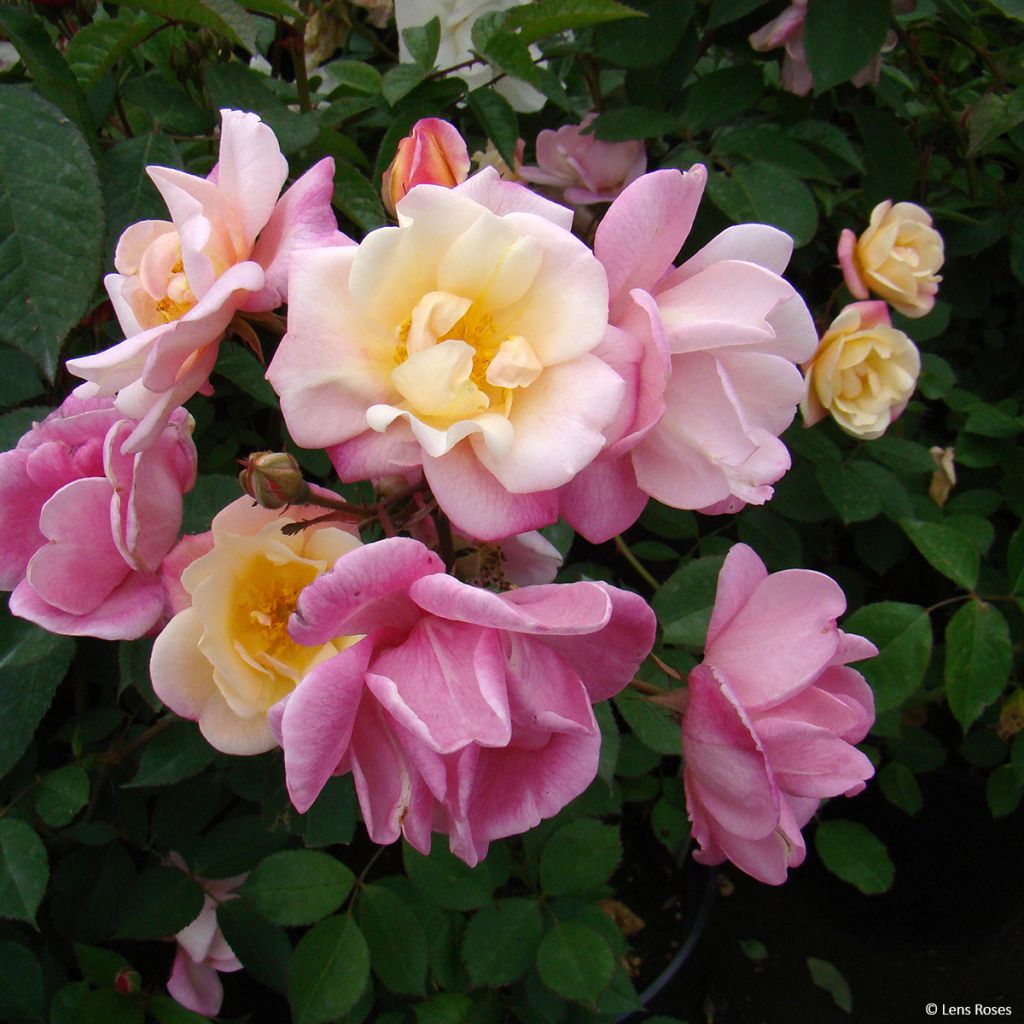

Rosa moschata Apricot Bells - Musk Rose
Rosa moschata Apricot Bells - Musk Rose
Rosa x moschata Apricot Bells® 'LENtrichni'
Musk Rose
Thanks to the team (for order preparation and shipping), the bare-root rose bush I received looks healthy to me. Planted in the ground, I am now patiently waiting for it to take root... or not?
Thierry, 11/02/2025
Special offer!
Receive a €20 voucher for any order over €90 (excluding delivery costs, credit notes, and plastic-free options)!
1- Add your favorite plants to your cart.
2- Once you have reached €90, confirm your order (you can even choose the delivery date!).
3- As soon as your order is shipped, you will receive an email containing your voucher code, valid for 3 months (90 days).
Your voucher is unique and can only be used once, for any order with a minimum value of €20, excluding delivery costs.
Can be combined with other current offers, non-divisible and non-refundable.
Home or relay delivery (depending on size and destination)
Schedule delivery date,
and select date in basket
This plant carries a 6 months recovery warranty
More information
We guarantee the quality of our plants for a full growing cycle, and will replace at our expense any plant that fails to recover under normal climatic and planting conditions.

Description
The 'Apricot Bells' shrub rose is a beautiful offspring of the 'Trier' climbing rose 'Trier' and the China rose 'Mutabilis'. This bush rose has inherited the exceptional vigour of its two parents, their ability to rebloom, the changing colour of the second rose's flowers as well as its colourful young shoots, the semi-double and fragrant character of the first rose's flowers, and it's very healthy foliage. In addition to these aesthetic qualities, it has low soil requirements and is very water-efficient. Its only weakness is its relative hardiness. In summary, it is a rose that absolutely must be discovered!
'Apricot Bells' is a Belgian creation by L. Lens from 1999. Like its parent 'Trier', it is related to the musk rose (Rosa x moschata), a spontaneous hybrid probably originating from Asia Minor or the Middle East. Like polyanthas and floribundas, the roses in this family produce flowers in clusters, but their colours are more refined and have a more flexible and graceful habit. 'Apricot Bells' shows rapid and vigorous growth. It develops strong and ramified thorny stems. Left to grow freely, this bush will reach a height of 1.20 m (4ft) to 1.50 m (5ft) with a spread of 1.20 m (4ft). In hot climates, its development is even more significant. This rose's young shoots are reddish-brown, creating a beautiful contrast with the mature leaves that are a fairly dark green. Absent in winter, this deciduous foliage is highly resistant to rose diseases. Flowering begins in May-June and continues in waves throughout the summer and autumn. It consists of small semi-double flowers measuring 4 cm (2in) in diameter. The flower buds are apricot in colour, opening into cream-yellow cups that turn pink before fading. The musky fragrance of the flowers is of medium intensity. The hardiness of this rose is estimated at -10/-12 °C (14/10.4°F).
This Apricot Bells shrub rose thrives in well-prepared soil and tolerates calcareous and dry soils, although drought can reduce its flowering. Plant it in a shrub bed, a flowering hedge with other botanical or heritage roses (Rosa hugonis, Rosa complicata, Rosa moyesi Geranium, etc.), lilacs of moderate size (Syringa microphylla superba), mock oranges, or Japanese quinces. Also, consider pairing it with a vitacella clematis, which is just as easy to grow as these shrubs.
Report an error about the product description
Rosa moschata Apricot Bells - Musk Rose in pictures
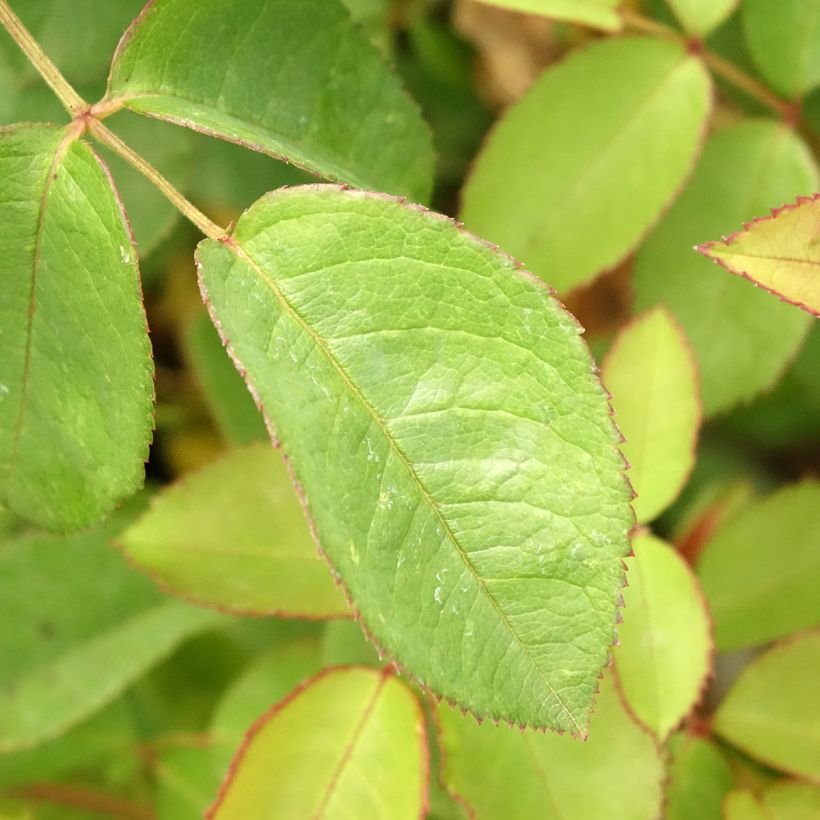

Plant habit
Flowering
Foliage
Botanical data
Rosa
x moschata
Apricot Bells® 'LENtrichni'
Rosaceae
Musk Rose
Cultivar or hybrid
Planting and care
To install your Apricot Bells rose, work the soil to a depth of 40 cubic cm, crumble the soil well and place a base amendment such as blood,fish and bone at the bottom of the planting hole. Position your plant, removed from its pot, covering the top of the root ball with 3 cm (1in) of soil. Fill the hole and water generously to eliminate air pockets. In dry weather, it is necessary to water regularly for a few weeks to facilitate root development. Also, remember to provide your rose with special rose fertiliser to stimulate the flowering of the plants.
Roses may develop unsightly spots at the end of summer, but this is natural and does not harm the rose's growth.
Planting period
Intended location
Care
-
, onOrder confirmed
Reply from on Promesse de fleurs
Similar products
Haven't found what you were looking for?
Hardiness is the lowest winter temperature a plant can endure without suffering serious damage or even dying. However, hardiness is affected by location (a sheltered area, such as a patio), protection (winter cover) and soil type (hardiness is improved by well-drained soil).

Photo Sharing Terms & Conditions
In order to encourage gardeners to interact and share their experiences, Promesse de fleurs offers various media enabling content to be uploaded onto its Site - in particular via the ‘Photo sharing’ module.
The User agrees to refrain from:
- Posting any content that is illegal, prejudicial, insulting, racist, inciteful to hatred, revisionist, contrary to public decency, that infringes on privacy or on the privacy rights of third parties, in particular the publicity rights of persons and goods, intellectual property rights, or the right to privacy.
- Submitting content on behalf of a third party;
- Impersonate the identity of a third party and/or publish any personal information about a third party;
In general, the User undertakes to refrain from any unethical behaviour.
All Content (in particular text, comments, files, images, photos, videos, creative works, etc.), which may be subject to property or intellectual property rights, image or other private rights, shall remain the property of the User, subject to the limited rights granted by the terms of the licence granted by Promesse de fleurs as stated below. Users are at liberty to publish or not to publish such Content on the Site, notably via the ‘Photo Sharing’ facility, and accept that this Content shall be made public and freely accessible, notably on the Internet.
Users further acknowledge, undertake to have ,and guarantee that they hold all necessary rights and permissions to publish such material on the Site, in particular with regard to the legislation in force pertaining to any privacy, property, intellectual property, image, or contractual rights, or rights of any other nature. By publishing such Content on the Site, Users acknowledge accepting full liability as publishers of the Content within the meaning of the law, and grant Promesse de fleurs, free of charge, an inclusive, worldwide licence for the said Content for the entire duration of its publication, including all reproduction, representation, up/downloading, displaying, performing, transmission, and storage rights.
Users also grant permission for their name to be linked to the Content and accept that this link may not always be made available.
By engaging in posting material, Users consent to their Content becoming automatically accessible on the Internet, in particular on other sites and/or blogs and/or web pages of the Promesse de fleurs site, including in particular social pages and the Promesse de fleurs catalogue.
Users may secure the removal of entrusted content free of charge by issuing a simple request via our contact form.
The flowering period indicated on our website applies to countries and regions located in USDA zone 8 (France, the United Kingdom, Ireland, the Netherlands, etc.)
It will vary according to where you live:
- In zones 9 to 10 (Italy, Spain, Greece, etc.), flowering will occur about 2 to 4 weeks earlier.
- In zones 6 to 7 (Germany, Poland, Slovenia, and lower mountainous regions), flowering will be delayed by 2 to 3 weeks.
- In zone 5 (Central Europe, Scandinavia), blooming will be delayed by 3 to 5 weeks.
In temperate climates, pruning of spring-flowering shrubs (forsythia, spireas, etc.) should be done just after flowering.
Pruning of summer-flowering shrubs (Indian Lilac, Perovskia, etc.) can be done in winter or spring.
In cold regions as well as with frost-sensitive plants, avoid pruning too early when severe frosts may still occur.
The planting period indicated on our website applies to countries and regions located in USDA zone 8 (France, United Kingdom, Ireland, Netherlands).
It will vary according to where you live:
- In Mediterranean zones (Marseille, Madrid, Milan, etc.), autumn and winter are the best planting periods.
- In continental zones (Strasbourg, Munich, Vienna, etc.), delay planting by 2 to 3 weeks in spring and bring it forward by 2 to 4 weeks in autumn.
- In mountainous regions (the Alps, Pyrenees, Carpathians, etc.), it is best to plant in late spring (May-June) or late summer (August-September).
The harvesting period indicated on our website applies to countries and regions in USDA zone 8 (France, England, Ireland, the Netherlands).
In colder areas (Scandinavia, Poland, Austria...) fruit and vegetable harvests are likely to be delayed by 3-4 weeks.
In warmer areas (Italy, Spain, Greece, etc.), harvesting will probably take place earlier, depending on weather conditions.
The sowing periods indicated on our website apply to countries and regions within USDA Zone 8 (France, UK, Ireland, Netherlands).
In colder areas (Scandinavia, Poland, Austria...), delay any outdoor sowing by 3-4 weeks, or sow under glass.
In warmer climes (Italy, Spain, Greece, etc.), bring outdoor sowing forward by a few weeks.






























